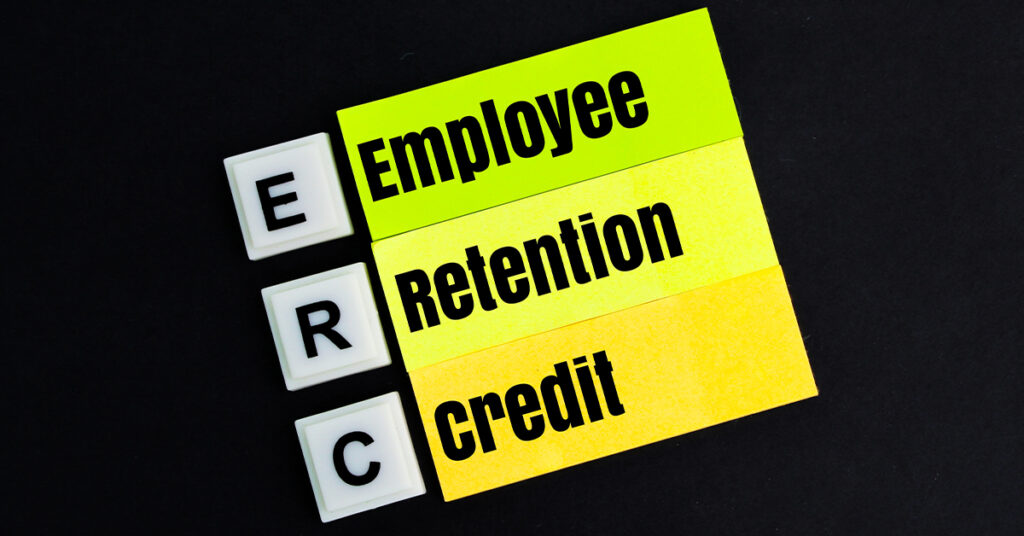Processing New ERC Claims? What You Must Know About the IRS ERC Mess

The Employee Retention Credit (ERC) was an important tax credit available to specific employers. The program ended at the end of 2021, but employers can still claim it by filing an amended tax return. However, as of September 15, 2023, the IRS issued some important changes in its e-News for Tax Professionals publication.
First, with an onslaught of potentially fraudulent claims, the IRS has ordered a stop of new ERC processing. Second, the IRS released a Q&A to help tax professionals explain the situation to ineligible clients. Third, the IRS published a warning about aggressive promotions that may encourage business owners to fraudulently file ERC claims. Finally, the newsletter alerted tax professionals that the organization was hiring an additional 3,700 employees to ensure that large corporations and complex partnerships complied with tax rules.
But are ERC claims really off the table? The answer is “sort of”. Legitimate ERC claims can still be filed. There’s a temporary stay in processing all new ERC claims until the end of 2023 at a minimum.
Don’t forget, if you need help with these business services, Jones CPA Group is here to guide you!
Is the Pause in Processing Warranted?
To be clear, there is a legitimate issue here. The IRS is facing a significant influx of fraudulent ERC claims. That fact is not contested. Instead, the issue is whether or not pausing claim processing is the right strategy.
There are pros to this situation, certainly. With processing paused, IRS employees have more time to double down on the vetting process, which means they may be able to clear more of those ineligible claims faster. However, this does put a burden on business owners with legitimate ERC claims and who are currently facing financial challenges that those credits could help offset.
Should Business Owners Submit Legitimate ERC Claims?
Let’s be blunt. If you’re a business owner facing financial hardships with legitimate ERC claims, you should submit them. The original deadline for all ERC claims was April 15, 2024, and that’s just around the corner.
If you don’t get your claims in now, there’s a good chance that you’ll miss the deadline. That’s no hardship for the IRS, but it does represent lost capital for your business, and in challenging financial times, most companies cannot afford to throw away money. Submitting your claim now ensures that you’ll be among the first processed when they resume in 2024.
What to Know about the ERC Processing Delay
Currently, the IRS has around 600,000 ERC claims still to process. That’s a massive number, and it means that if your claim is among them, you can plan on it being delayed.
The standard turnaround time is 90 days, but with this kind of backlog, the IRS has had to adjust things. Currently, business owners can expect to wait at least 180 days for the IRS to process their claims. If your claim needs further review or triggers an audit, you can expect to wait even longer.
What does that mean for business owners? There are two things to understand here.
First, if you’ve filed a legitimate ERC claim, you need to have patience. The IRS will get to your claim as soon as possible. Just make sure that you have all the documentation necessary to verify the authenticity of the claim if the IRS requires it (this should have been in hand before filing).
Second, if your claim is illegitimate, you need to act. IR-2023-169 details the options open to you. We also recommend speaking with a tax professional unless your tax professional recommended filing an illegitimate ERC in the first place. In that instance, we recommend finding a new tax firm.
Guidance for Tax Professionals and Business Owners
Part of the new information the IRS published was a Q&A designed to arm tax professionals to push back against clients insistent on filing fraudulent claims. That’s not all that helpful. Instead, the IRS should focus on clearly defining who does qualify. Thankfully, the new IRS checklist does that. You can access it here and check employer eligibility rules, ERC claim eligibility, and what to do in the case of an improper claim.
Know the Warning Signs
While some employers might be pushing their tax professionals to file questionable claims, a bigger problem is the number of bad actors aggressively pushing business owners to file claims, even if they are not eligible for the ERC.
The onus is on the business owner to ensure that their claim is valid. This is always the case. If a bad actor has urged you to file a claim that turned out to be invalid, report them to the IRS. You could be eligible for a financial reward. You also take a nefarious organization or individual out of play, making it easier for other business owners to remain above board.
Failure to double-check your eligibility could cost you in a couple of ways. First, you could be facing an IRS audit. You could also be out the money you paid the promoter, which is usually around 25% of the proposed credit.
Always know whether your claim is eligible. If a promoter pushes you to file an ineligible claim, report them.
Who Will the New Employees Scrutinize?
The IRS is bringing 3,700 new employees on board. You can rest easy, though. They’re not interested in individual tax filers or SMBs. Instead, their primary focuses will be high-income earners, large corporations, complex partnerships, and going after bad actors (promoters pressuring business owners to file illegitimate ERC claims).
What to Remember
We’ve covered a lot of ground here, so let’s sum up with a few bullet points highlighting what you need to remember:
- No new ERC claims will be processed until at least the beginning of 2024. However, you should go ahead and file legitimate claims now to ensure faster processing when the IRS resumes.
- With a backlog of over 600,000 ERC claims, business owners can expect delays in processing their current claims. Have patience. If your claim is filed but illegitimate, take action to rectify the situation now.
- Always back up your ERC claims with accurate documentation.
- Tax professionals should educate their clients about ERC eligibility using the new IRS checklist.
- Aggressive promoters urging business owners to file fraudulent ERC claims should be reported.
- The IRS is doubling down on auditing high-income earners, large corporations, and complex partnerships.
Ultimately, the ERC program might be paused, but business owners with legitimate claims and the documentation to back those claims up should still file. However, it’s crucial to know your eligibility and report bad actors pushing you to make illegitimate claims.
Do you need help with your ERC Claims? Jones CPA Group is here for you. Click here to contact us to get started!






